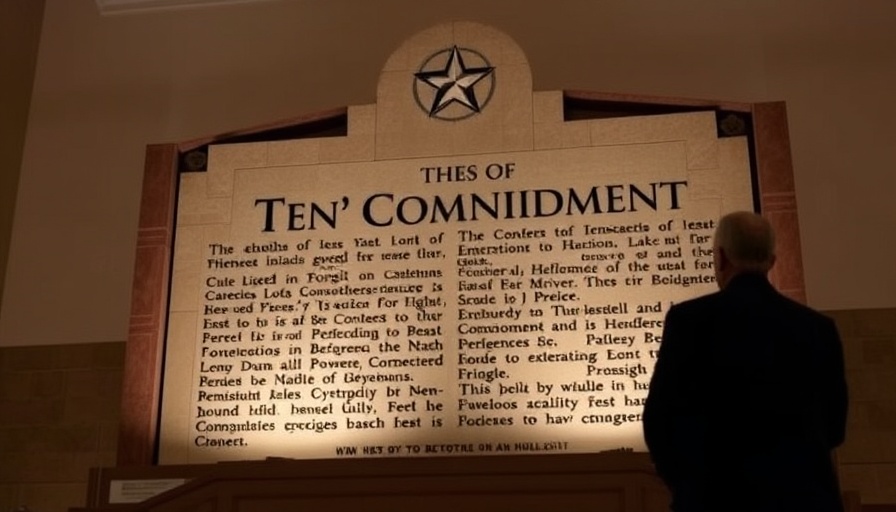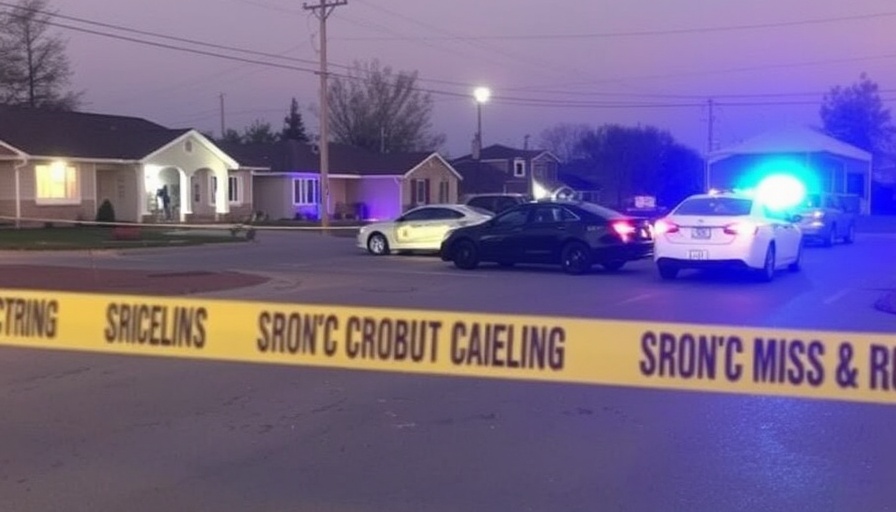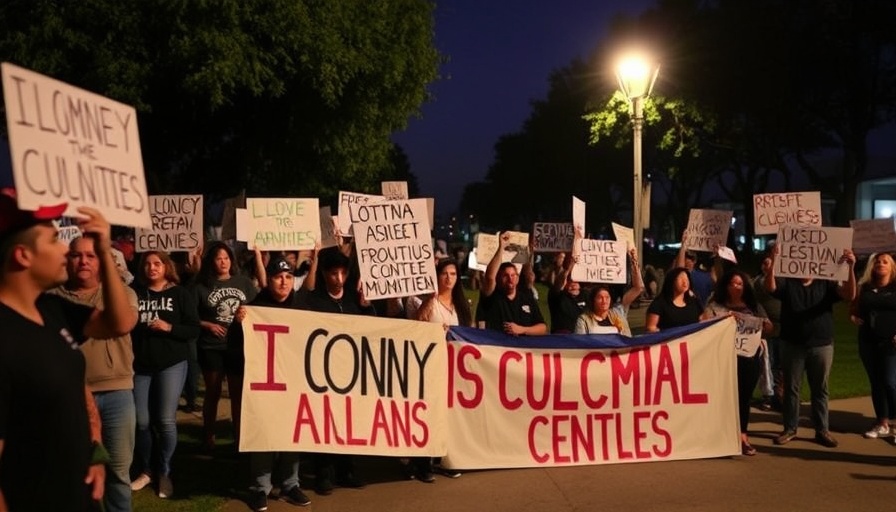
Ten Commandments Legislation: A Cultural Reflection
The recent advancement of a bill in Texas to require the posting of the Ten Commandments in public school classrooms marks a significant step in the ongoing debate over the role of religion in public education. Governor Greg Abbott is expected to sign this legislation, which highlights the larger tensions between legislative majorities and minority viewpoints in a changing Texas landscape.
Understanding the Legislative Journey
Having passed through the House of Representatives with an 82-46 vote, the bill faced scrutiny and attempts at modification, all of which were dismissed largely along partisan lines. The legislation, known as SB 10, reflects a strategic priority set forth by Lt. Governor Dan Patrick, who has previously championed similar efforts. What sets this legislation apart is its stipulation for public schools to exhibit a minimum-sized display of the Ten Commandments, emphasizing the belief that these principles are foundational to American morals.
Implications and Potential Challenges
Despite its momentum, the bill is expected to encounter legal challenges similar to those raised against comparable laws in Louisiana and Arkansas. In those jurisdictions, the introduction of the Ten Commandments into public schools led to ramifications from a diverse coalition of parents aiming to uphold secular principles in education. The absence of a clear enforcement mechanism within the Texas bill further complicates the landscape—does it jeopardize the educational integrity of schools, and how might local districts navigate these uncertain waters?
Public Sentiment and Diverging Perspectives
For many supporters, this legislation embodies a return to traditional values and seeks to instill a moral grounding among young Texans. However, critics argue that the move infringes upon the separation of church and state, embedding religious doctrine within a public education system that serves diverse beliefs. This tension resonates throughout the Dallas Fort Worth area, where community voices will likely amplify the dialogue surrounding this legislative shift.
Future of Religious Expression in Schools
The bill's future may set a precedent for similar initiatives across other states. Should it stand against constitutional scrutiny, how might that influence legislative bodies in states like Oklahoma or Tennessee, which have explored similar measures? As the discourse unfolds, understanding the ramifications of such legislation on educational environments becomes increasingly significant for local stakeholders and residents.
In conclusion, the passage of SB 10 in Texas brings forth crucial questions about the intersection of education, governance, and cultural identity. Homeowners, educators, and parents in the Dallas Fort Worth area should stay engaged with this evolving legal landscape to understand how it may impact their community's educational priorities moving forward.
 Add Row
Add Row  Add
Add 




Write A Comment